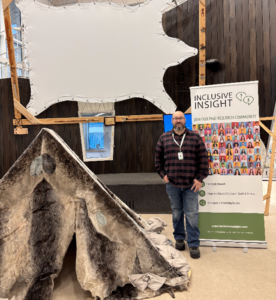
Why Diverse Panels Are Essential
Including multilingual populations in healthcare research is vital for developing policies and treatments that reflect the realities of diverse communities. For example, nearly 20% of the U.S. population speaks a language other than English at home, therefore, excluding these linguistic groups from research risks missing valuable insights into their unique healthcare experiences.
Multicultural panels further enrich research by capturing cultural factors—such as health behaviors and attitudes toward medical care—that can vary significantly across different communities. This approach enables healthcare organizations to tailor their strategies to better meet the needs of diverse patient populations.
Including people from diverse socioeconomic backgrounds is equally essential, as access to healthcare and the ability to navigate the system can vary widely. Research shows that individuals from lower socioeconomic groups often face more barriers to accessing care and experience worse health outcomes compared to those in higher income brackets. Without their perspectives, healthcare policies and treatments may fail to address the disparities that exist across socioeconomic lines.
Key Benefits of Using Diverse Research Panels
Healthcare providers that leverage diverse research panels gain several critical advantages:
- Inclusive research helps healthcare providers create more effective treatment plans for diverse patient populations, especially underserved communities.
- Diverse panels ensure that healthcare organizations meet inclusivity regulations while also improving the quality of the research.
- Incorporating various cultural and linguistic perspectives reduces bias, making research findings more reliable and actionable.
Moving Toward a More Inclusive Future in Healthcare Research
Diverse panels provide healthcare organizations with the tools they need to understand the diverse experiences of patients, ensuring that care strategies are both equitable and effective.
At Decision Point Research, we specialize in providing culturally sensitive, scalable research solutions. We work with healthcare providers to ensure that their research is comprehensive and accurately reflects the populations they serve.
Ensure your research reflects the true diversity of patient experiences—partner with us to integrate diverse panels into your healthcare research.










